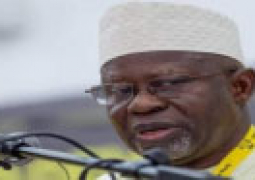
“To get up and stop vehicles from entering The Gambia would be an overage where we are right now, with our neighbors not only Senegal but also Guinea-Bissau and Guinea-Conakry. It is important that whatever we do aligns with regional policy initiatives.”
His comments come amid concerns raised by Gambian transport unions, who recently issued a statement seeking to minimise what they called the influence of foreign commercial vehicles on local transport operations.
Sillah, however, cautioned that The Gambia cannot afford to act in isolation, especially given its membership of ECOWAS and its strong dependence on cross-border trade and movement.
“We are engaging the unions to understand the strategic impact of their concerns,” he said. “Maybe they are reacting to what they see happening elsewhere. But closing our borders or limiting access is not the solution.”
The minister revealed that similar challenges exist across the subregion and emphasised the need for cooperation rather than retaliation.
“I had personal experience trying to drive into Guinea-Bissau; it wasn’t pleasant,” he recounted. “So if our transporters face difficulties elsewhere, we shouldn’t retaliate. We should engage.”
Sillah disclosed that The Gambia is currently involved in a regional sensitisation campaign with five West African countries—The Gambia, Senegal, Guinea-Bissau, Guinea-Conakry, and Mali—to improve understanding among security and transport officers operating along cross-border routes.
“There is a lot of sensitization and engagement going on right now,” he said. “Especially for the security forces who are on the roads, so that they understand the regional agreements and treat drivers fairly.”
While acknowledging the concerns of local drivers who feel overshadowed by foreign transporters, Sillah urged patience and dialogue rather than unilateral action.
“We understand the unions’ frustrations,” he admitted. “But we must balance national interests with regional obligations. Blocking foreign vehicles might look like a solution in the short term, but in the long run, it will hurt our economy and our diplomatic relations.”




